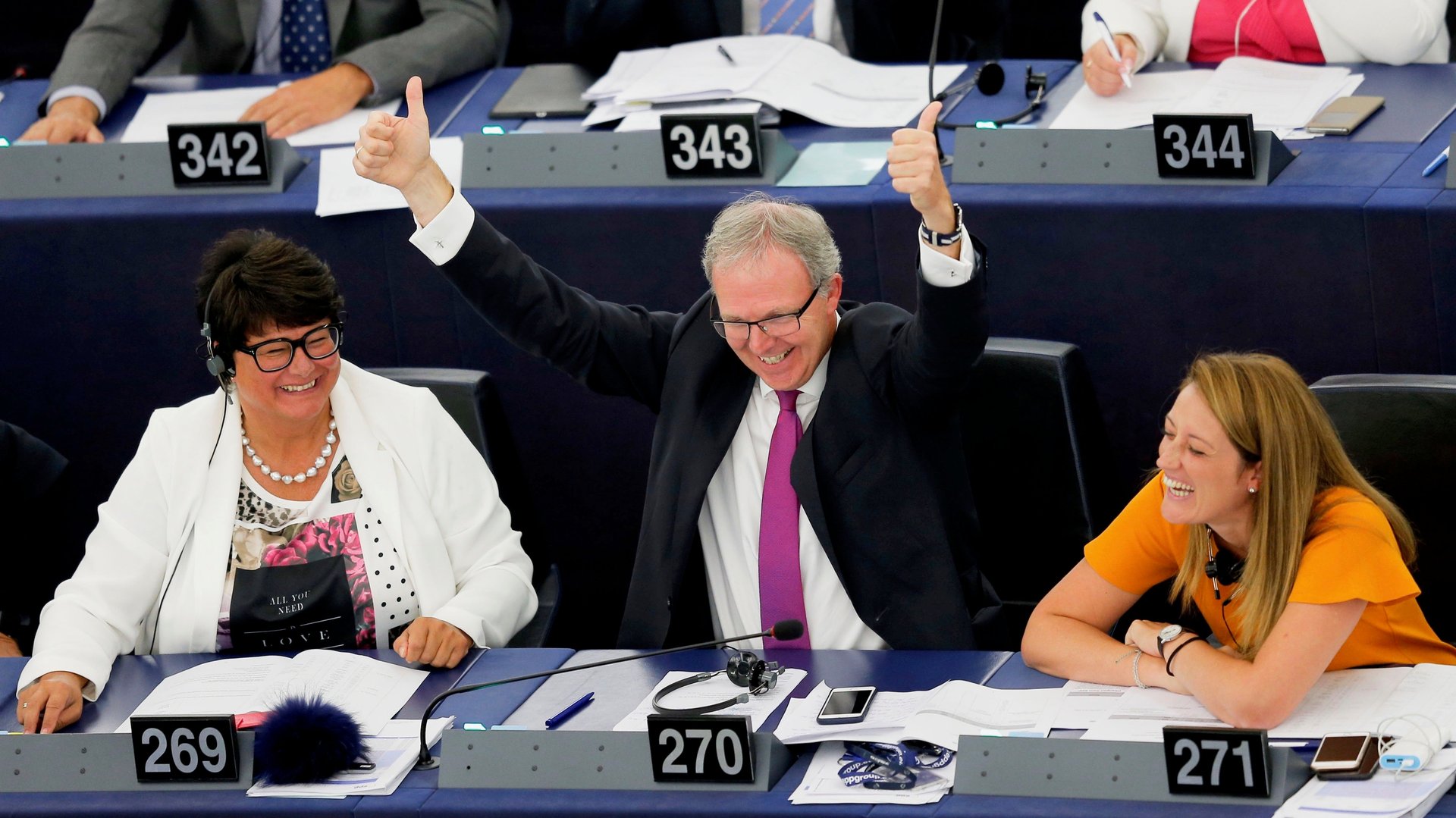The EU has approved a copyright law that could change the internet as we know it
The EU parliament today (Sept. 12) voted to approve controversial copyright reforms that have been in the works since 2016 and could transform the internet for users in Europe and beyond.


The EU parliament today (Sept. 12) voted to approve controversial copyright reforms that have been in the works since 2016 and could transform the internet for users in Europe and beyond.
The Copyright Directive is meant to protect content creators and has received strong support from some in the artistic and media communities. But its critics—including internet pioneers as well as tech giants like Google, Facebook, and Apple—argue that the reforms would hamper the free flow of information, turn tech companies into content police, and lead to the web’s ossification.
At a session in Strasbourg, France, European lawmakers approved an updated version of the Copyright Directive, including the much-contested Article 11 and Article 13. Article 11 calls for news aggregators like Google to pay media companies a so-called “link tax” when sharing their content. Article 13 demands that platforms police the content uploaded to posts ahead of their publication by using automated software that would detect and filter out intellectual property violations.
Axel Voss, the German politician and member of the European Parliament (MEP) who led the initiatives on Articles 11 and 13, celebrated the vote and thanked his fellow politicians “for the job we have done together,” The Verge reports. “This is a good sign for the creative industries in Europe,” said Voss.
However, opponents of the law warn that these changes, meant to help content creators benefit financially from the open web, will only lead to a closed internet. Though almost everyone—including tech giants and internet pioneers—concede that changes to copyright law meant to ensure that creators get paid for their work are needed, the Copyright Directive’s solutions—particularly the “link tax” and “upload filters” of Articles 11 and 13—aren’t the way forward, they say.
Some European lawmakers also decried the changes. Dutch MEP Marietje Schaake said in a statement after the vote that she is disappointed by the result. “The Parliament squandered the opportunity to get the copyright reform on the right track. This is a disastrous result for the protection of our fundamental rights, ordinary internet users and Europe´s future in the field of artificial intelligence. We have set a step backwards instead of creating a true copyright reform that is fit for the 21st century,” argues Schaake.
A summary of the EU legislation explains that the internet has become the main marketplace for distribution and access to copyright-protected content. Unlike traditional business models, however, people who produce and publish content and own the rights to intellectual property have a hard time enforcing their rights to the work online. Lawmakers argue that this “could put at risk the development of European creativity and production of creative content,” which is why stronger laws protecting creators are needed.
But the new law wouldn’t just have an impact professional content creators, warn technologists. “The impact of Article 13 would also fall heavily on ordinary users of Internet platforms—not only those who upload music or video (frequently in reliance upon copyright limitations and exceptions, that Article 13 ignores), but even those who contribute photos, text, or computer code to open collaboration platforms such as Wikipedia and GitHub,” wrote the web’s inventor, Tim Berners, and internet pioneer Vint Cerf in a June 12 letter (pdf) to Antonio Tajani, president of the European Parliament.
The copyright law is not set in stone yet. Now individual EU member states will vote on it at home before the directive returns to the European Parliament for another vote late in 2018 or early 2019. If approved, member states will each interpret the directive, which is meant to unify the EU’s approach to intellectual property, as they see fit.
So there’s still a long road ahead before posts are policed by machines and newsfeeds are required to pay for every link. Enjoy the web as we know it while you still can.